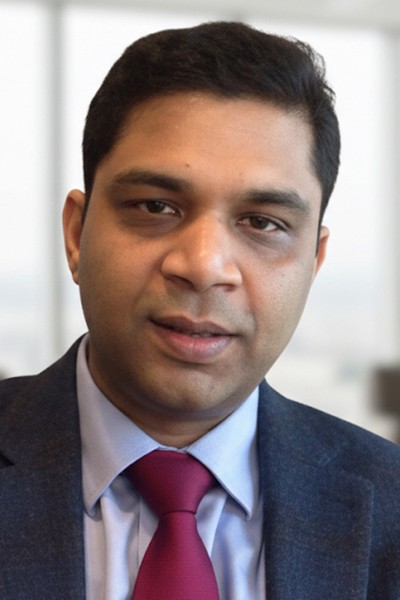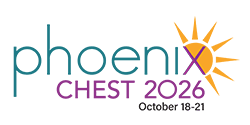OSA is one of the most common breathing disorders, and, yet, many patients with the condition find it difficult to tolerate PAP therapy, resulting in nonadherence in 27% to 51% of cases.
Experts will discuss how to troubleshoot these issues and explore innovative neurotherapy options to help optimize care for complex cases during the CHEST 2025 session PAP Nonadherence in OSA: Management Strategies at 2:15 pm CT in McCormick Place, Lakeside Center, Room 353B.

Ritwick Agrawal, MD, FCCP, Associate Professor of Medicine at Zucker School of Medicine and Chief of Internal Medicine and Director of Sleep Medicine at Huntington Hospital, will chair the case-based panel discussion. He will be joined by Carolyn D’Ambrosio, MS, MD, FCCP, of Brigham and Women’s Hospital and Harvard Medical School; Neil Freedman, MD, FCCP, of Endeavor Health Medical Group and the University of Chicago Pritzker School of Medicine; and Nathan Nowalk, MD, of the University of Pennsylvania Health System and the Perelman School of Medicine.
“The idea is to get input from different experts in the field on their own practice patterns and how they approach these challenging cases in light of the latest technologies and outcomes,” Dr. Agrawal said.
The four experts will analyze cases with longitudinal follow-up, review the latest evidence-based strategies, and ultimately choose the best treatment options for those patients. The session will highlight some of the alternatives to PAP therapy, such as the growing role of hypoglossal nerve stimulation and a recently approved glucagon-like peptide-1 agonist, signaling a paradigm shift in OSA treatment options. The experts will also discuss strategies to increase patients’ receptivity to PAP therapy and innovations in PAP, including new masks that are better tolerated and surgical options that are gaining more mainstream acceptance due to their ease of management.
This session is of critical importance because OSA is a chronic condition that is sometimes managed suboptimally, Dr. Agrawal said. However, with effective management, clinicians can significantly impact patients’ long-term cardiovascular and neurological outcomes.
“This is a very practical session with real clinical scenarios intermixed with the latest evidence,” he said. “Attendees will find it very helpful with its down-to-earth approach, which they can immediately apply to their day-to-day practice.”

Call for Topics Is Open
Feeling inspired by all the great sessions in Chicago? Help shape the curriculum for CHEST 2026, October 18 to 21 in Phoenix, by submitting topic ideas from areas you’re passionate about, topics affecting your practice, or new technologies you’d like to learn more about. The submission deadline is Tuesday, December 2, at 2 pm CT.


